
To be clear, this list isn't comprehensive. There are several thousand games on sale, and, unfortunately, we can't play everything. (As always, feel free to share your own recommendations below.) Definitions of "under-the-radar" may differ, but the vast majority of this list consists of games we haven't covered previously on Ars, and I've generally tried to avoid more well-publicized indies like Ars GOTY winners Hades and Celeste. So, allow us to shine a light on some good games that may not immediately seem laudable. Steam's sale ends on July 8, but you can consider these recommendations valid for afterwards as well.
Note: Ars Technica may earn compensation for sales from links on this post through affiliate programs.
Ape Out

Normal price: $15
Deal price: $4.94
Length: 2-3 hours
Also on: Switch
In Ape Out, you play as an ape who wants out. This is a top-down beat-em-up in the vein of Hotline Miami, only more soulful than cynical in its violence. The levels and their jazzy soundtracks are all procedurally generated, so there’s no way to memorize a “correct” route. You rarely stop moving, and oftentimes, it’s best to run from confrontation entirely. Like good jazz, it all has an air of improvisation.
All of this turns what could be a simple power fantasy into something more poetic: ape smash, yes, but it’s also desperate, afraid, and angry—the way any cornered being would be when it aches for freedom.
art of rally

Normal price: $25
Deal price: $17.49
Length: 20 hours
Art of rally is a rally racing game played from a top-down perspective. It’s not a simulator: The cars look like Matchbox toys, they aren’t officially licensed, and there’s no co-driver. But it’s not pure arcade fare, either. You can load up on assists, but you still need to tame the beast to achieve fast times, maintaining a feel of your car’s weight, grip, momentum, and balance.
There’s a career mode that takes you through different eras of rally and leaderboards to compare times against. Where art of rally excels, though, is in locating that subconscious zone that comes with attaining true focus through a video game. The minimalist style, bold colors, electro soundtrack, and just-feisty-enough handling combine to create an almost-meditative state—it’s just you, that winding road, and the need to go fast, with no distractions in between.
Before Your Eyes
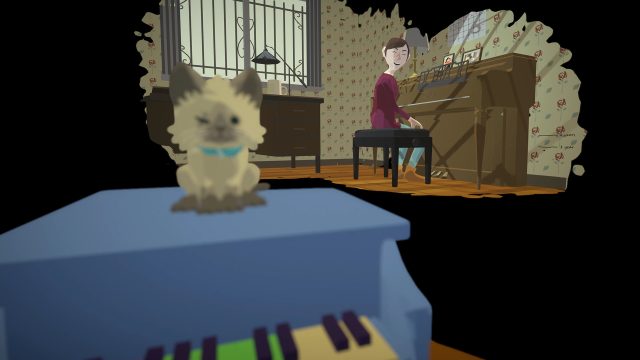
Normal price: $10
Deal price: $7.99
Length: 1-2 hours
Before Your Eyes is a narrative-driven game with a brilliant core conceit. This is a story about recalling the memories of an artist’s life after death, and you hop from moment to moment by blinking. At various points, a symbol of an eye will appear on-screen; if you hover over it and blink, you’ll uncover more detail about the scene at hand. Eventually, a metronome icon will appear; blink from that point on, and the memory will end, regardless of whether you’ve fully consumed it. You’ll then jump forward to the next moment.
You’ll need a webcam—though you can still play without one—but as a mechanic designed to express a point about the inevitability of time and finding peace with regret, it’s powerful, if a bit on-the-nose. Life moves forward as steadily as the need to blink. This is the deal we must accept. Memories emerge as incomplete splashes of time. Straining to stay in a particularly illuminating moment, fighting nature to keep your eyes open as long as possible, knowing you’re bound to progress... this is the kind of externalization of experience you can only get from a video game.
Before Your Eyes has issues. The game lives and dies on its narrative, and the central players feel a bit undercooked by the end of the 1.5-hour runtime. There’s a mid-game twist that veers close to cloying territory. The stray elements of player choice seem needless, threatening to undermine the story being told. Still, the overarching tale of parents passing the weight of their pasts onto their children is more thoughtful than not. Mostly, Before Your Eyes is worth considering as an experiment in involuntary interaction.
Dandara
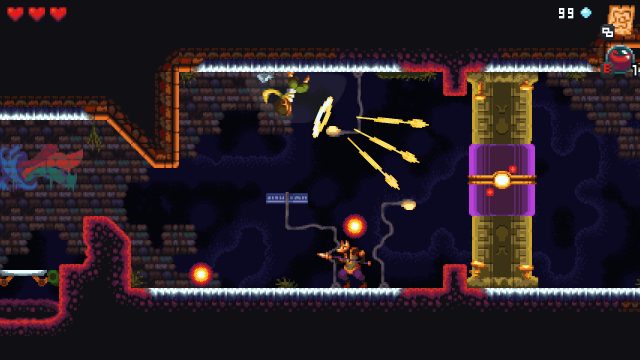
Normal price: $15
Deal price: $4.49
Length: 8-10 hours
Also on: Switch, Xbox, PS4, iOS, Android
Dandara reconfigures the platformer. Instead of the long arcing jumps of a Mario game, the titular heroine here moves only in straight lines, bouncing off walls and slicing the air like a katana. You can’t walk or run. It’s a foreign sensation at first, but one that immediately makes moving through the world refreshing and engaging.
This is a Metroidvania, so expect your share of backtracking and abilities to upgrade. The narrative is thin in terms of written exposition but still rich in imagery and focused in tone. (Look up the game’s namesake to get an idea of what’s going on here.) And while it’s difficult, it’s not about being difficult the way lots of pixel-art platformers can be. Dandara respects your ability to learn and never patronizes.
Eliza
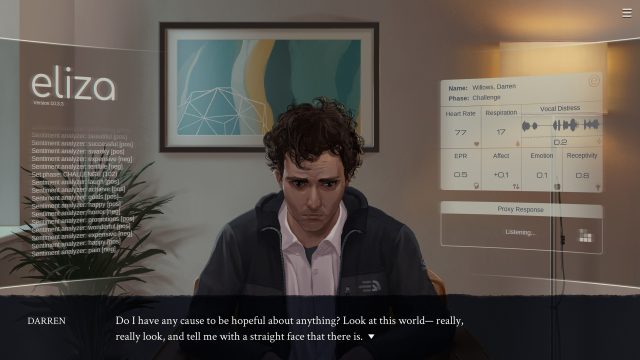
Normal price: $15
Deal price: $7.49
Length: 5-7 hours
Also on: Switch
Eliza is a visual novel that might appeal to regular Ars readers, as it’s essentially about what would happen if Amazon turned Alexa into a therapist. You play as Evelyn, a former developer of the titular virtual counselor. She left her tech-industry gig after a traumatic event and general burnout, but she returns to the Amazon stand-in three years later as one of the AI’s “proxies,” lending a human voice to the program as it counsels (or attempts to, at least) a number of genuinely troubled people. All the while, this tool collects hordes of data in the process.
For much of the game, this amounts to you simply pressing buttons, confirming what the machine tells you to say as these patients bare their souls in search of help. As a game mechanic, this fits: Evelyn is a woman adrift, unsure of whether her work has actually done any good. When you’re in that state, sometimes all you want to do is disengage and follow prompts.Eventually, you and Evelyn gain more agency in ways you might expect. Outside of the therapy sessions, you interact with other people in Evelyn’s life, who range from skeptics to tech evangelists. But throughout, the voice acting is effective, and the writing stays grounded and lucid. This is a game that asks relevant, provocative questions but refuses to provide easy answers where there are none.
If Found…

Normal price: $13
Deal price: $8.44
Length: 2-3 hours
Also on: Switch, iOS
If Found… is a game about Kasio, a young woman who has just graduated from college and returned home to a small island off the west coast of Ireland. It’s the early 90s, she is trans, and neither her family nor her hometown truly accept her. She finds refuge and experience in a handful of friends who have been similarly outcast.
Playing If Found… is about erasure. The bulk of the game exists as vibrant sketches and notes on the pages of Kasio’s journal, which you erase, one by one, to move the narrative forward. This can be as emotionally brutal as it sounds. But the game understands that we erase not just to destroy, but to also create a clean page. Put another way, the four weeks depicted in If Found… play like a memory, one that is crucial to its protagonist’s life but doesn’t define who she is going forward.
This is a game about connection, ultimately, both between the characters involved and between the player and the game itself. Situating the game in a journal, let alone erasing it, creates a startling sense of intimacy, and the deeply Irish script is filled with pop-up glossary terms to keep you from feeling like too much of an outsider. This isn’t a happy game, and its metaphorical B-story doesn’t land as well as the core plot. Nevertheless, If Found… is an affecting and true story about how small moments can make someone’s world feel at stake.
In Other Waters
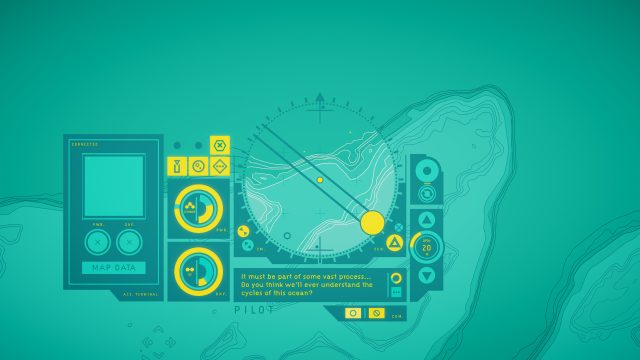
Normal price: $15
Deal price: $7.49
Length: 5-7 hours
Also on: Switch
In Other Waters follows Dr. Ellery Vas, a xenobiologist searching for life in the vast oceans of an alien planet. The twist is that you don’t play as her—instead, you’re the AI in her diving suit. As such, you view this new world through a cold, crowded user interface, all dots and lines and boxes. She gives you broad goals to meet during each expedition, and you navigate her through the unknown accordingly, making increasingly more significant discoveries along the way.
It quickly becomes clear that In Other Waters is a game about different beings existing in harmony. Your understanding of the world comes through Ellery’s reactions, research notes, and sketches. When she’s in awe, you become curious, and when she gets nervous, a sense of dread starts to creep in. It’s a testament to the game’s writing and phenomenal soundtrack that it successfully brings its world to life, and creates a sense of wonder, entirely through text and sound design.
The wider narrative explores similar themes. It’s didactic, with a clear point to make about how capitalism disrupts that environmental harmony, but it’s intelligent about it. The downside is that the game turns this unknown world into something taxonomical, with completion percentages and blank creature entries to fill. This works with the game’s scientific bent but lessens the feeling of mystery. Still, for those seeking an expressive take on the text adventure, In Other Waters is lovely.
Lonely Mountains: Downhill
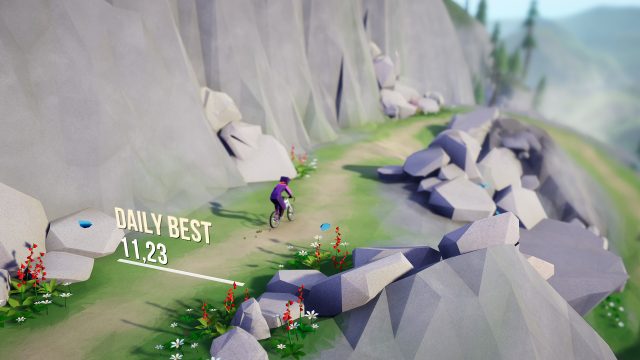
Normal price: $20
Deal price: $9.99
Length: 5-6 hours (30+ hours for completionists)
Also on: Switch, Xbox, PS4
Lonely Mountains: Downhill is a physics-based mountain biking game. There are a handful of mountains, you always start at the top, and you have to get to the bottom of each trail in one piece. Finishing the run under a certain time or with minimal wipeouts will complete challenges, which reward you with new bikes and outfits. Spoiler: You will crash. And crash again. And again. And again.
It’s more comedic than frustrating. Most trails have checkpoints dotted throughout the run, and respawns are quick. There’s a constant push-pull between getting to the end as fast as possible—potentially skipping parts of the trail entirely—and delicately guiding your avatar through rocks, trees, and chasms. There’s a tremendous sense of motion and momentum as you dash further down, but you are fragile, and that’s the point.
There’s a serenity to this. There’s no background music, just the sounds of running creeks, chirping birds, and bike tires crunching against dirt. You never come across other people. Sometimes, you can get off the bike completely and admire a nice view. More than just a fun arcade racer, Lonely Mountains: Downhill becomes an unexpected reflection on our place in nature.
Maquette

Normal price: $20
Deal price: $15
Length: 3-4 hours
Also on: PS4, PS5
The levels of first-person puzzler Maquette are crafted like a series of nested Russian dolls. At the center of each is a diorama. Move an object in its model-size setting, and the action will be mirrored on a larger scale in the normal-size layer just outside. As you venture further out, each layer of the world becomes progressively larger. As a result, any object can be at once minuscule and towering. A key in the smallest model becomes a bridge in the full-size one. Small cracks in one layer become broad chasms in another.
Framing this inventive mechanic is the story of a man reflecting on an old love. I found it honest and uncommonly mature, but it occasionally walks the line between open-hearted and twee. Regardless, the themes of the narrative feel tailor-made for this method of play: a first kiss can lead to a new world of experiences, just as a stray keepsake can recall a wave of memories, just as an unaddressed rift can spiral into the destruction of a relationship. A brief romance informs a whole self. The structure of its puzzles opens up over time, but Maquette always takes pains to ensure what you’re doing builds upon what you’re hearing. This is the best thing it has going for it.If there’s a complaint, it’s that each puzzle has one “right answer.” Sometimes a solution is less about working through the game’s recursive logic and more about finding the thing needed to progress. Still, in a game about someone who learns specific lessons from a finite past, not having Portal-style open play spaces is understandable. It’s tempting to think of a future game that runs further with these systems, but for now, Maquette is an effective marriage of simple themes and complex gameplay.
Olija
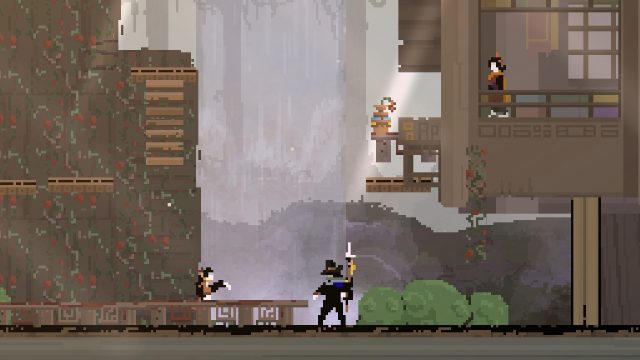
Normal price: $15
Deal price: $9.89
Length: 5-6 hours
Also on: Switch, Xbox, PS4
Olija is yet another 2D action-platformer, but one that uniquely excels at coaxing an air of mystery from its world. It tells the story of Faraday, a shipwrecked lord trapped in a hostile unknown land marked by decay. He soon finds a legendary harpoon, which he can teleport to or have magically returned to him when thrown. Faraday then gets wrapped up in a sweeping adventure to rid the land of a hidden evil and get the rest of his crew home.
It’s a vintage “hero’s journey,” with puzzle sections, unlockable abilities, hidden areas, and boss fights. But Olija stands out in the details. It isn’t eager to explain itself at every turn; it commits to presenting a foreign land. Dialogue and music are sparse, often there to punctuate the brooding tone. Cutscenes end at off-beat times. The flip screens are lush with expressions of history. What gave the harpoon its power? Who inhabited the skeletons hung about these caves? Why is this old ferryman helping you? The land has character, but the gaps are precisely sized, leaving room for your mind to color between the lines.
Olija is not a particularly difficult game. Some screens are free of enemies or demanding jumps altogether. And while combat can have a satisfying zip and crunch, Faraday often tumbles and leaps in a way that borders on sloppy. But all of this contributes to the idea that this world isn’t there for you to master so much as it just is. At five-ish hours, Olija gets in, makes its point, and gets out. It looks crude, but it’s a game where each element feels purposeful. This is a throwback to titles that didn’t relegate the “world-building” to collectible audio logs and journal entries.
Signs of the Sojourner
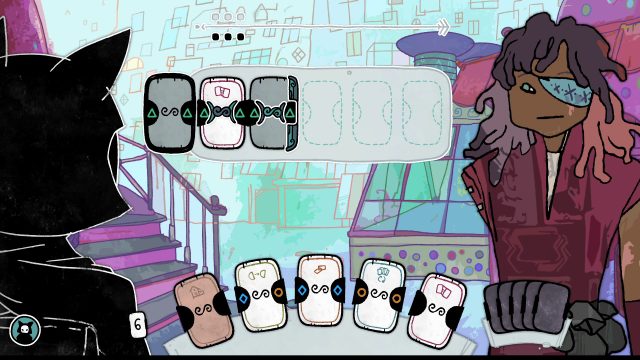
Normal price: $20
Deal price: $13.99
Length: 4-5 hours
Signs of the Sojourner is a deck-building card game, but instead of vanquishing foes, your goal is to work together with your counterpart, chaining cards to stay engaged in conversations as best you can. You play as a traveling trader trying to keep their late mother’s shop afloat, following her caravan routes to secure new wares. To obtain those goods, you chat up locals in each town, your conversations represented by alternating turns in the card game. The aim is to match symbols at the ends of each card, sort of like dominoes. Do so successfully, and you’ll have a positive interaction; fail, and things will turn sour. After each conversation, you replace one of the 10 cards in your deck with a new one from your most recent chat.
All of this starts off simply, when you’re safe in the comfort of your hometown, but it gradually becomes more involved as new and unfamiliar types of cards are introduced, useless “fatigue” cards from traveling farther away pile up in your deck, and more options for travel destinations open up.Do you see where this is going? Over time, your deck comes to reflect how your travels have shaped your character. You carry the experiences of your past, of the people you’ve met, in your hand. You keep some with you; you leave others behind. The more you travel away, the more jumbled your deck becomes, which makes it harder to “converse” with the once-familiar hands back home. The more you work, the more fatigue you build up, which makes it harder to have pleasant exchanges with anyone. If you’re looking at this and thinking, “Well, that doesn’t sound like something I can win all the time,” you’re just about getting it. Signs of the Sojourner can sometimes feel more clever than true-to-life, but taken as an expression of that bittersweet tension between becoming your own person and staying true to your roots, it’s an evocative and remarkably harmonious take on the deck-builder.
Super Mega Baseball 3
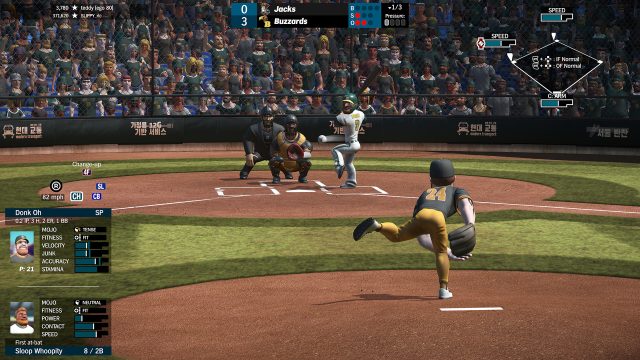
Normal price: $45
Deal price: $24.74
Length: It’s a sports game.
Also on: Switch, Xbox, PS4
Super Mega Baseball 3 captures the essence of what makes baseball baseball, without getting bogged down in the intricate systems of a sim like MLB: The Show. The core principles are still there—mixing up and locating pitches, being patient at the plate, maximizing your roster’s skills in the right situations, etc.—but it plays faster, it’s more accommodating to control, and it amplifies the little touches that make a day at the ballpark its own little universe.
The made-up teams (the Sirloins, Overdogs, etc.) and players (Hammer Longballo, Immaculo Spectaculo, etc.) have a cartoony, larger-than-life aesthetic. The umps grunt enthusiastically on a third strike call. Pitchers openly adjust their “equipment” on the mound. Each stadium is a distinctly different place.There’s online and co-op play, as well as a franchise mode that isn’t nearly as deep as that of The Show but still lets you develop a squad over several seasons. Over time, your roster comes to resemble an RPG party, with each player bringing their own on-field specialties and outsized personality. Super Mega Baseball 3 is the closest thing left to a modern version of Nintendo’s old line of Ken Griffey Jr. games—it’s baseball through a theatrical lens.
The Longing
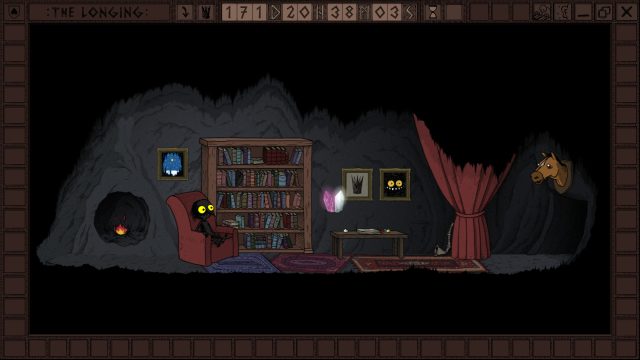
Normal price: $15
Deal price: $11.99
Length: 25 hours-400 days
Also on: Switch
My personal Game of the Year from 2020, The Longing is somewhere between an idle game, a Tamagotchi, and a rumination on middle-class life itself. You play as a small sooty-looking being known as A Shade, who is borne from the hand of a massive King deep in the recesses of an underground cave network. The King tells you his strength is waning and that he must sleep for 400 days to regain his power. He requests that you wake him once the time has passed, at which point he vaguely promises to “end all fear and longing.”
At that point, a 400-day timer starts to tick down. It depletes in real time and doesn’t pause when you close the game. From there, it’s up to you. You can obey, waiting the full 400 days, potentially (and mercifully) speeding up the timer by furnishing the Shade’s makeshift living space, sketching artwork, and reading actual works of literature like Moby Dick or Thus Spoke Zarathustra. Or, you can wander, ignoring your duties, exploring what secrets (or non-secrets) exist beyond your home, venturing further into doubt and darkness in the search for some potentially greater—but possibly more selfish—fulfillment. Either way, the timer will eventually run out, and one of multiple endings will occur.You can bookmark specific spots in the caves for the Shade to automatically return to, but he walks at a glacial pace. There are no enemies to combat, no dense gameplay systems to lose yourself in, few distractions, and little prompting to push your actions in a certain direction.
It's a total rejection of popular game design, but if you buy in, The Longing uses its slowness and minimalism to wonderful effect. The many discoveries you can make in the caves are led to feel like genuine revelations, not the ends of carefully plotted breadcrumb trails. There are images of metaphorical beauty and a haunting score that floats in and out to punctuate crucial moments. Then, over time, the world is seen in a new light: New avenues open, but what was previously fresh can start to become routine. Throughout, there is just enough mystery to keep you engaged, but there's always ample room for you to consider the Shade’s lonely state. The result is a game that compels you to contemplate fundamental questions: Who are you serving? And what are you waiting for?
The Messenger
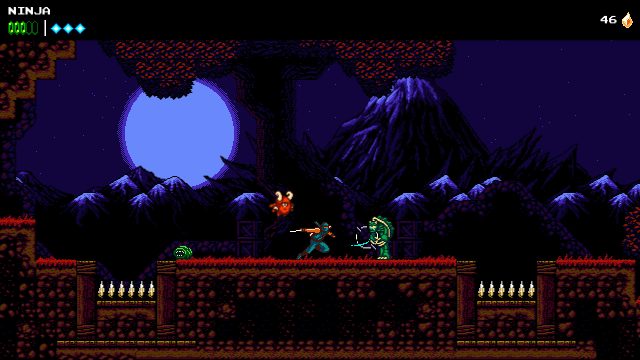
Normal price: $20
Deal price: $7.99
Length: 12-15 hours
Also on: Switch, Xbox, PS4
It’s tough to recommend The Messenger without spoilers, because the thing that elevates it beyond your everyday retro Ninja Gaiden clone is a massive mid-game twist that recontextualizes the entire project. For now, let’s just say that if you’re into challenging 2D action-platformers, this is a good one of those, not only crisp to control but surprisingly thoughtful as a look at how level design works. This introspective, meta-heavy approach also helps make it one of the funniest games of recent years.
Wide Ocean Big Jacket

Normal price: $8
Deal price: $1.99
Length: 1-2 hours
Also on: Switch, iOS
Wide Ocean Big Jacket is a brisk slice-of-life narrative game about a young couple taking their niece and her friend out camping. It stands out for being aggressively normal, which says more about gaming as a whole than anything else. It tells a gentle, lighthearted story about love, both brushing up against it while young and better understanding it while older. It isn’t a sweeping melodrama. There’s no tragic twist. Instead, it focuses on small, genuine moments in its four leads’ lives that speak to who they may have become. It’s sharply written, in that way that enriches its characters through what isn’t said as much as what is. It plays like something that actually happened.
In terms of interaction, Wide Ocean Big Jacket is fairly light. You do a little walking and complete a few simple tasks. More interesting is how it’s directed: always from the eye of a discrete camera, quickly cutting from shot to shot. Each scene is located in a vivid, narrow space filled with only the details that matter. Looking beyond the objects in your immediate view, there’s always a big wall of color. In this way, each scene resembles a sort of memory space, a dreamlike arena that fleshes out the portrayed snapshot in time. They’re also often funny.
Quick hits for 15 more games worth trying
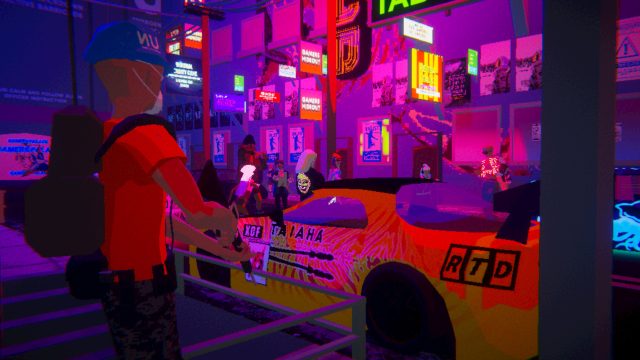
To close, here's another batch of lesser-publicized recommendations that are on sale. In rapid-fire format:
Distant Worlds: Universe ($14.99): A truly massive, decidedly hardcore space-based 4X game. Its interface is a bit of a mess and a sequel is coming, so we’d only take the plunge while it’s on sale.
Downwell ($0.98): A kinetic, reflex-testing, lo-fi cross between a shoot-em-up and a platformer in which you fall ever-downward. It’s more intricate than it first looks. (Also on Switch, PS4, iOS, Android).
FAR: Lone Sails ($7.49): A quiet, atmospheric 2.5D side-scroller (a la Inside) that blends puzzle-platforming with keeping an ornate vehicle moving across a post-apocalyptic landscape. (Also on Switch, Xbox, PS4, iOS, Android).
Heaven’s Vault ($12.49): A slow, pensive sci-fi archaeological adventure about unlocking a lost language. It's not afraid to let you miss things and adapt its narrative accordingly, even when you don't realize that's what's happening. (Also on Switch, PS4).
Iconoclasts ($5.99): A pixel-art 2D platformer that separates itself with a nuanced story of religion, environmentalism, clashing ideologies, and difficult people. (Also on Switch, Xbox, PS4).
Industries of Titan ($23.99): A grimy, extraterrestrial, cyberpunk-esque city management sim that lets you customize the ins and outs of your buildings while embracing your inner capitalist. Be warned that it’s still in early access.
Islanders ($2.49): Another city builder, but one that's uniquely chill in tone, minimalist in scope, and roguelike-like in structure.
Paper Beast ($11.99): A surrealist VR game about beholding and interacting with ecosystems in another world, from the designer of the all-time classic Another World. (Also on PS4).
Paradise Killer ($13.99): A wild, free-form detective game where you try to deliver justice from a murder mystery, with “try” being the key word. The protagonist’s name is Lady Love Dies, to give you an idea of the aesthetic. (Also on Switch).
Per Aspera ($20.09): A planetary terraforming sim and hardcore management game with a hard sci-fi bent and a bigger focus on narrative than most games in the genre.
Quadrilateral Cowboy ($9.99): A puzzle game about committing heists that turns command-line programming into a game mechanic instead of treating “hacking” as a simple A-to-B process.
Shadow Tactics: Blades of the Shogun ($3.99): A real-time, isometric, tactical stealth game set during Japan’s Edo period with a playful, toy-box feel. The team behind this went on to make last year’s excellent but somewhat overlooked Desperados III, which itself is on sale for $25. (Also on Xbox, PS4).
Three Fourths Home ($0.74): A brief yet affecting narrative game that explores the American struggle across generations and the power of familial support. One of the few games set in the Midwest. (Also on Switch, Xbox, PS4).
Trials of Fire ($15.99): A complex turn- and card-based roguelike that’s designed like a mix of XCOM and Slay the Spire.
Umurangi Generation ($11.24): A righteous, anxious first-person photography game set in the self-proclaimed “shitty future” that treats its photo-taking seriously. It has an excellent soundtrack, too. (Also on Switch).
reader comments
91